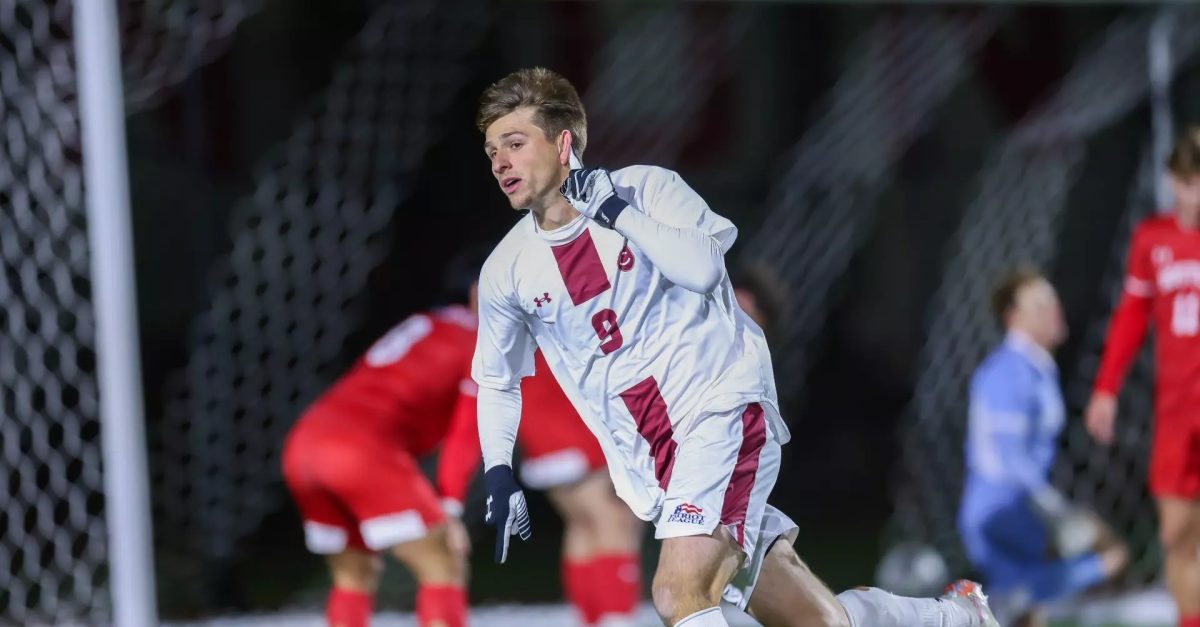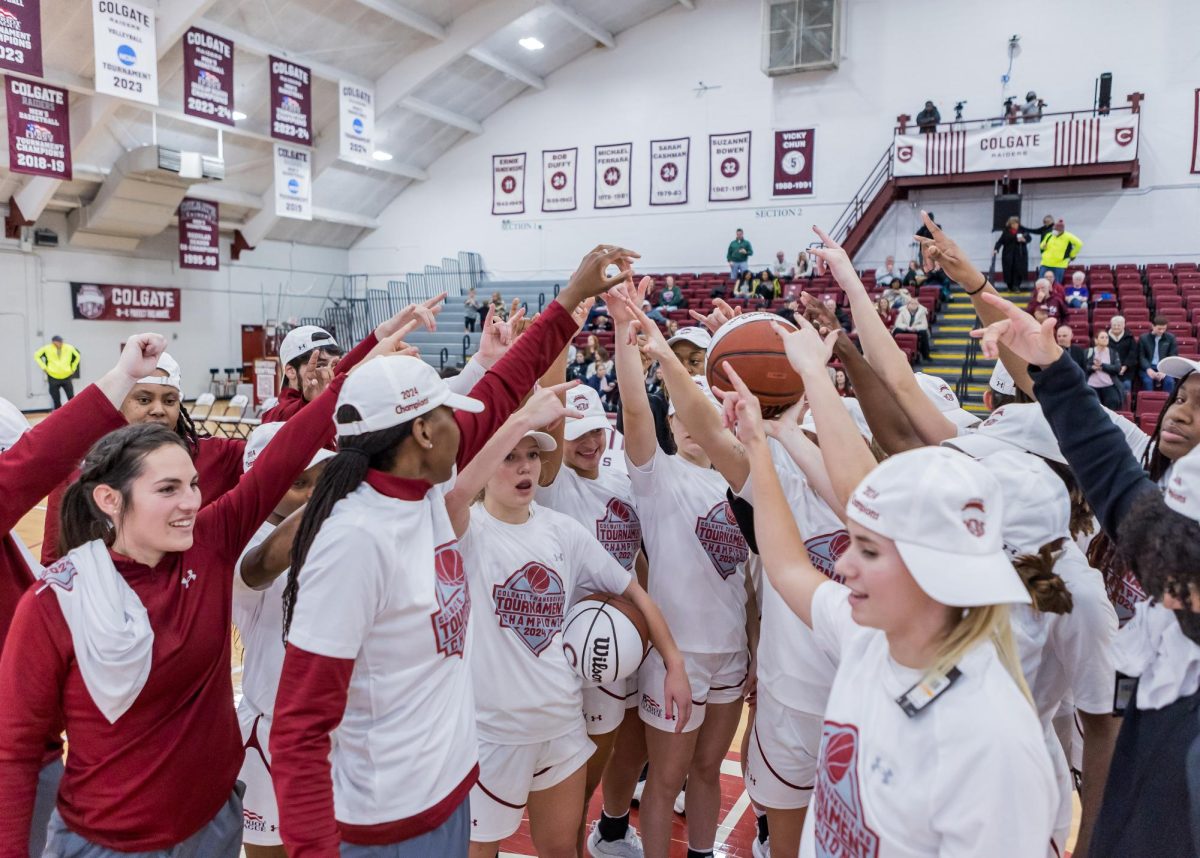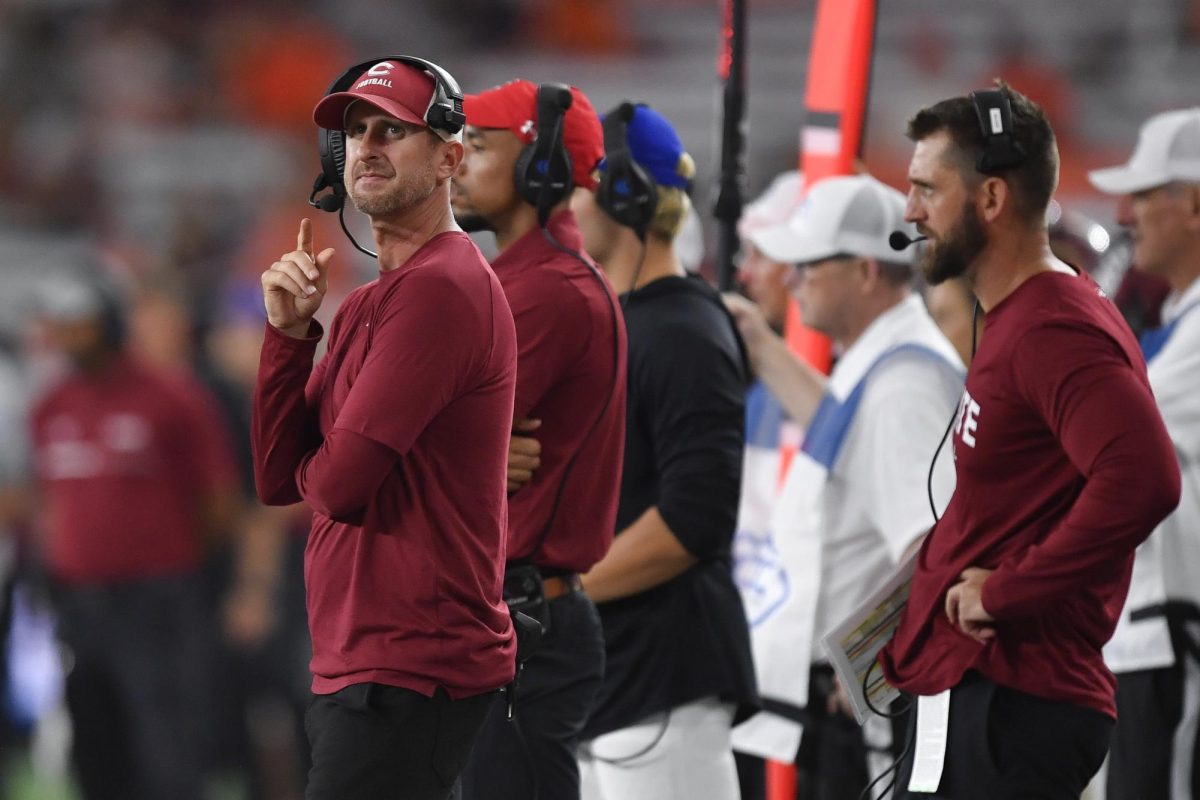College is always a time of flux, a time when we experience new things and confront new challenges. What have been students’ experiences regarding their personal challenges at Colgate University? Considering the impact of the COVID-19 pandemic on the senior class’s first-year here, how do their experiences compare to those of the current first-years? First-year Madison Brown and senior Fernando Rivas illustrated the various challenges that are unique to each of their respective classes as well as those common to both. Their experiences show the varying challenges students face when entering college as well as how certain experiences and actions can help to build community.
Brown described that her adjustment to Colgate went relatively smoothly. While she had to adapt to living in a dorm and managing college-level academics, she found that the transitional process was equal parts difficult and manageable, ultimately serving as a helpful learning experience.
“I think I’m just getting used to the time management. Each week is different; each day is different. I take it day by day,” Brown said. “Not every week is going to be the same.”
Brown also discussed the specifics of how to cope with coursework at Colgate. In particular, Brown has found it helpful to be more active when it comes to engaging with professors and taking advantage of existing support systems more than she had in the past.
“In high school, I didn’t really ask [teachers] for help […]. Now, I’m taking the initiative to go to the professors for office hours, even if it’s not for academics,” Brown said. “Doing study groups — even asking my peers for help, too — that’s new to me. I think just not studying alone and trying to make the effort to socialize while asking for help has helped me kind of get used to [academic life at Colgate].”
Brown also discussed her thoughts about life in a dorm, which for many people is among the most highly anticipated aspects of the college experience.
“I definitely think living in a dorm is an adjustment,” Brown said. “It didn’t bother me too much, but living with a roommate is definitely a learning process.”
Rivas, like Brown, had to be prepared to adapt to life at Colgate during his first year, albeit during a very different period: the Fall of 2020 and the height of the COVID-19 pandemic. While Rivas and Brown shared similar struggles in terms of meeting people and learning to adapt to dorm life, the pandemic presented Rivas and other first-years with a unique situation.
Colgate implemented remote or hybrid classes and activities following a full two-week lockdown at the beginning of the Fall semester. For Rivas and the rest of the Class of 2024, the COVID-19 pandemic left a distinct mark. Initially, the restrictions made social and academic life much more challenging. Nevertheless, Rivas did not find that it created insurmountable barriers, but instead felt that the pandemic shaped a very strong, insular class community and encouraged participation in Colgate activities as soon as those opportunities were available.
“The truth is that the camaraderie that people talk about is there,” Rivas said. “Our class year, 2024, was not that good at making connections with the classes [above and below], just because of that insularity […]. The class is active, it’s just that they’re active together.”
More generally, Rivas noted that while his first year was far from normal, Colgate’s administration did an admirable job allowing students to thrive even in the bizarre conditions of the pandemic, when many schools across the country at all levels were closed and virtual.
“I give full credit to Colgate,” Rivas said. “They had us on campus, they kept us on campus and ultimately my [first] year was a success.”
Where Rivas found the pandemic to be a surmountable obstacle to social life, Brown has viewed social media as a similar challenge. Despite her initial fears that her lack of social media would make college life much more challenging for her, Brown found that it simply took effort and a change of mindset to make social connections effectively.
“I would have to be the one to initiate,” Brown said. “It’s not weird, it’s just that you’re trying to make a connection, and friends slowly build over time.”
While she did not enter her first year amidst a pandemic, she faced other challenges that many first-years can relate to. In terms of general ways of managing the stressors of Colgate, Brown emphasized the need for patience.
“Give yourself time. Don’t put stock on everything in the first semester. Slowly take baby steps, slowly build and it will all come together into something great,” Brown said. “Opportunities can pop up at any moment, so have an open mindset and be willing to accept sudden changes.”
Rivas and Brown both emphasized the importance of taking initiative when meeting people and trying to connect with students in hopes of finding similar interests. Rivas offered even more pointed advice when it came to connecting with others.
“Be willing to just be the weird person that starts a conversation,” Rivas said. “That is both what I’ve done and what I’ve had done to me […]. That’s how I meet a ton of people.”
While each class year and each individual will have their own experiences at Colgate, there is value in learning from one another’s experiences. If one aspect of Colgate remained constant across Rivas and Brown’s experiences, it’s that no challenge is too daunting. As a first-year and senior, the two offer important advice and show how stepping out of one’s comfort zone can lead to fulfilling relationships and community. Navigating academics, dorm life, social life and unprecedented circumstances at a formative age is certainly a challenge, but Rivas and Brown act as examples of how to take advantage of the support offered at Colgate. If you give yourself time and put yourself out there, you can get everything you need and more out of your four years here.















